Edward Said
| Edward Said | |
|---|---|
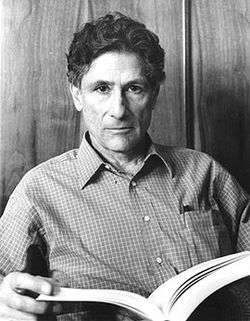 | |
| Born |
Edward Wadie Said 1 November 1935 Jerusalem, Mandatory Palestine |
| Died |
25 September 2003 (aged 67) New York City, United States |
| Education | Princeton University |
| Spouse(s) | Mariam C. Said |
| Era | 20th-century philosophy |
| Region | Western philosophy |
| School | Postcolonialism, postmodernism |
Notable ideas | Occidentalism, Orientalism, the Other |
Edward Wadie Said (Arabic pronunciation: [wædiːʕ sæʕiːd] Arabic: إدوارد وديع سعيد, Idwārd Wadīʿ Saʿīd; 1 November 1935 – 25 September 2003) was a Palestinian professor of literature at Columbia University, a public intellectual, and a founder of the academic field of postcolonial studies.[3] Born in Mandatory Palestine, Said was an American citizen from birth by way of his father Wadir Saïd, a U.S. Army veteran of the First World War (1914–18).[4]
Educated in the Western canon, at British and American schools, Said applied his education and bi-cultural perspective to illuminating the gaps of cultural and political understanding between the Western world and the Eastern world, especially about the Israeli–Palestinian conflict in the Middle East. His main influences were Antonio Gramsci, Frantz Fanon, Aimé Césaire, Michel Foucault, and Theodor Adorno.[5]
As a cultural critic, Said is known for the book Orientalism (1978), a critique of the cultural representations that are the bases of Orientalism—how the Western world perceives The Orient.[6][7][8][9] Said’s model of textual analysis transformed the academic discourse of researchers in literary theory, literary criticism, and Middle Eastern studies—how academics examine, describe, and define the cultures being studied.[10][11] As a seminal work, Orientalism has been a subject of scholarly controversy.[12][5]
As a public intellectual, Said was a controversial member of the Palestinian National Council, because he publicly criticized Israel and the Arab countries, especially the political and cultural policies of Muslim régimes who acted against the national interests of their peoples.[13][14] Said advocated the establishment of a Palestinian state to ensure equal political and human rights for the Palestinians in Israel, including the right of return to the homeland. He defined his oppositional relation with the status quo as the remit of the public intellectual who has “to sift, to judge, to criticize, to choose, so that choice and agency return to the individual” man and woman.
In 1999, with his friend Daniel Barenboim, Said co-founded the West–Eastern Divan Orchestra, based in Seville, which comprises young Israeli, Palestinian, and Arab musicians. Moreover, besides being a Renaissance Man, Said was an accomplished pianist; and, with Barenboim, co-authored the book Parallels and Paradoxes: Explorations in Music and Society (2002), a compilation of their conversations about music.[15] Said died of leukemia in September 2003.[16]
Biography
Early life

Edward Wadie Said was born on 1 November 1935, to Hilda Said and Wadir Said, a businessman in Jerusalem, then part of British-governed Mandatory Palestine (1920–48).[17] Wadir Said, was Palestinian man who soldiered in the U.S. Army component of the American Expeditionary Forces (1917–19), commanded by General John J. Pershing, in the First World War (1914–18). Afterwards, that war-time military service earned American citizenship to Said père and his family. Hilda Said was born Lebanese and raised in Nazareth, Palestine.[18]
In 1919, in partnership with a cousin, Wadir Said established a stationery business in Cairo. Like her husband, Hilda Said was an Arab Christian, and, although the Said family practiced the Jerusalemite variety of Greek Orthodox Christianity, Edward was agnostic. Moreover, his sister Rosemarie Saïd Zahlan (1937–2006) also pursued an academic career.[19][20][21][22][23]
Education
Said lived his boyhood between the worlds of Cairo and Jerusalem; in 1947, he attended St. George's School, Jerusalem, a British school of stern Anglican Christian cast. About being there, Said said:
With an unexceptionally Arab family name like “Saïd”, connected to an improbably British first name (my mother much admired [Edward VIII] the Prince of Wales in 1935, the year of my birth) I was an uncomfortably anomalous student all through my early years: a Palestinian going to school in Egypt, with an English first name, an American passport, and no certain identity, at all. To make matters worse, Arabic, my native language, and English, my school language, were inextricably mixed: I have never known which was my first language, and have felt fully at home in neither, although I dream in both. Every time I speak an English sentence, I find myself echoing it in Arabic, and vice versa.— "Between Worlds", Reflections on Exile, and Other Essays (2002) pp. 556–57[24]
By the late 1940s, Edward’s schooling included the Egyptian branch of Victoria College, Alexandria (VC), where one classmate was Michel Shaloub (later the actor Omar Sharif), whom he remembered as a sadistic, physically abusive Head Boy. Edward’s other classmates included (King) Hussein of Jordan, and the Egyptian, Syrian, Jordanian, and Saudi Arabian boys whose academic careers would progress to their becoming ministers, prime ministers, and leading businessmen in their respective countries.[25]
In that colonial time and place, the function of a British colonial school, such as VC, was to educate selections of young men from the Arab and Levantine ruling classes, to become the Anglicized post-colonial administrators who would rule their countries, upon British decolonization. About Victoria College, Edward said:
The moment one became a student at [Victoria College], one was given the student handbook, a series of regulations governing every aspect of school life—the kind of uniform we were to wear, what equipment was needed for sports, the dates of school holidays, bus schedules, and so on. But the school’s first rule, emblazoned on the opening page of the handbook, read: 'English is the language of the school; students caught speaking any other language will be punished.' Yet, there were no native speakers of English among the students. Whereas the masters were all British, we were a motley crew of Arabs of various kinds, Armenians, Greeks, Italians, Jews, and Turks, each of whom had a native language that the school had explicitly outlawed. Yet all, or nearly all, of us spoke Arabic—many spoke Arabic and French—and so we were able to take refuge in a common language, in defiance of what we perceived as an unjust colonial stricture.— ”Between Worlds”, Reflections on Exile, and Other Essays (2002) pp. 556–57.[26]
In 1951, Victoria College expelled Edward, who had proved a troublesome boy, despite being a student of great intelligence and much academic achievement; he then attended Northfield Mount Hermon School, Massachusetts, a socially élite, college-prep boarding-school where he lived a difficult year of social alienation. Nonetheless, the student Edward excelled, and achieved the rank of either first (valedictorian) or second (salutatorian) in a class of one hundred sixty students.[24]
In retrospect, being sent far from the Middle East (Egypt) he viewed as a parental decision much influenced by “the prospects of deracinated people, like us [the Palestinians], being so uncertain that it would be best to send me as far away as possible.”[24] The realities of peripatetic life—of interwoven cultures, of feeling out of place, and of homesickness—so affected the schoolboy Edward that themes of dissonance feature in the work and worldview of the academic Said.[24] At school’s end, he had become Edward W. Said—a polyglot intellectual (fluent in English, French, and Arabic) who had earned a Bachelor of Arts (1957) degree at Princeton University, and Master of Arts (1960) and Doctor of Philosophy (1964) degrees in English Literature from Harvard University.[27][28]
Career
In 1963, Said joined Columbia University, as a member of the English and Comparative Literature faculties, where he taught and worked until 2003. In 1974, he was Visiting Professor of Comparative Literature at Harvard; during the 1975–76 period, he was a Fellow of the Center for Advanced Study in Behavioral Science, at Stanford University. In 1977, he became the Parr Professor of English and Comparative Literature at Columbia University, and subsequently was the Old Dominion Foundation Professor in the Humanities; and in 1979 was Visiting Professor of Humanities at Johns Hopkins University.[29]
Said also worked as a visiting professor at Yale University, and lectured at other universities.[30] Said lectured at more than 200 universities in North America, Europe, and the Middle East.[31] In 1992, Said was promoted to "Professor", the highest-rank academic job at Columbia University.[32] Editorially, Prof. Edward Said served as president of the Modern Language Association; as editor of the Arab Studies Quarterly in the American Academy of Arts and Sciences; was on the executive board of International PEN; and was a member of the American Academy of Arts and Letters, the Royal Society of Literature, the Council of Foreign Relations[29] the American Philosophical Society.[33] In 1993, Said presented the BBC’s annual Reith Lectures, a six-lecture series titled Representation of the Intellectual, wherein he examined the role of the public intellectual in contemporary society, which the BBC published in 2011.[34]
Literary production
Said's first published book, Joseph Conrad and the Fiction of Autobiography (1966), was an expansion of the doctoral dissertation he presented to earn the PhD degree. Moreover, in Edward Saïd: Criticism and Society (2010), Abdirahman Hussein said that Conrad's novella Heart of Darkness (1899) was "foundational to Said's entire career and project".[35][36] Afterwards, Said redacted ideas gleaned from the works of the 17th-century philosopher Giambattista Vico, and other intellectuals, in the book Beginnings: Intention and Method (1974), about the theoretical bases of literary criticism.[37] Said's later works include The World, the Text, and the Critic (1983), Nationalism, Colonialism, and Literature: Yeats and Decolonization (1988), Culture and Imperialism (1993), Representations of the Intellectual: The 1993 Reith Lectures (1994), Humanism and Democratic Criticism (2004), and On Late Style (2006).
Orientalism
Said became an established cultural critic with the book Orientalism (1978) a critique (description and analyses) of Orientalism as the source of the false cultural representations with which the Western world perceives the Middle East—the narratives of how The West sees The East. The thesis of Orientalism proposes the existence of a “subtle and persistent Eurocentric prejudice against Arabo–Islamic peoples and their culture”, which originates from Western culture’s long tradition of false, romanticized images of Asia, in general, and the Middle East, in particular. That such cultural representations have served, and continue to serve, as implicit justifications for the colonial and imperial ambitions of the European powers and of the U.S. Likewise, Said denounced the political and the cultural malpractices of the régimes of the ruling Arab élites who have internalized the false and romanticized representations of Arabic culture that were created by Anglo–American Orientalists.[38]
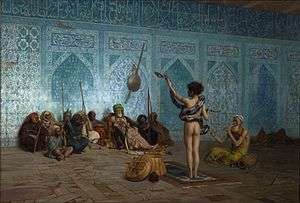
So far as the United States seems to be concerned, it is only a slight overstatement to say that Moslems and Arabs are essentially seen as either oil suppliers or potential terrorists. Very little of the detail, the human density, the passion of Arab–Moslem life has entered the awareness of even those people whose profession it is to report the Arab world. What we have, instead, is a series of crude, essentialized caricatures of the Islamic world, presented in such a way as to make that world vulnerable to military aggression.— “Islam through Western Eyes” (1980) The Nation.[39]
Orientalism proposed that much Western study of Islamic civilization was political intellectualism, meant for the self-affirmation of European identity, rather than objective academic study; thus, the academic field of Oriental studies functioned as a practical method of cultural discrimination and imperialist domination—that is to say, the Western Orientalist knows more about the Orient than do the Orientals.[38][40]
That the cultural representations of the Eastern world that Orientalism purveys are intellectually suspect, and cannot be accepted as faithful, true, and accurate representations of the peoples and things of the Orient; that the history of European colonial rule and political domination of Asian civilizations, distorts the writing of even the most knowledgeable, well-meaning, and culturally sympathetic Orientalist.
I doubt if it is controversial, for example, to say that an Englishman in India, or Egypt, in the later nineteenth century, took an interest in those countries, which was never far from their status, in his mind, as British colonies. To say this may seem quite different from saying that all academic knowledge about India and Egypt is somehow tinged and impressed with, violated by, the gross political fact—and yet that is what I am saying in this study of Orientalism.— Introduction, Orientalism, p. 11.[41]
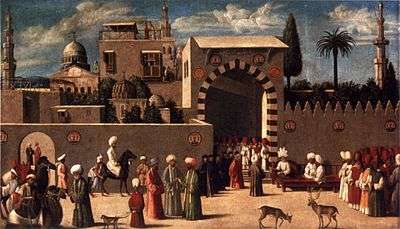
That since Antiquity, Western Art has misrepresented the Orient with stereotypes; in the tragedy The Persians (472 BCE), by Aeschylus, the Greek protagonist falls, because he misperceived the true nature of The Orient.[42] That the European political domination of Asia has biased even the most outwardly objective Western texts about The Orient, to a degree unrecognized by the Western scholars who appropriated for themselves the production of cultural knowledge—the academic work of studying, exploring, and interpreting the languages, histories, and peoples of Asia; therefore, Orientalist scholarship implies that the colonial subaltern (the colonised people) were incapable of thinking, acting, or speaking for themselves, thus are incapable of writing their own national histories. In such imperial circumstances, the Orientalist scholars of the West wrote the history of the Orient—and so constructed the modern, cultural identities of Asia—from the perspective that the West is the cultural standard to emulate, the norm from which the “exotic and inscrutable” Orientals deviate.[43]
The thesis of Orientalism concluded that the West’s knowledge of the Orient depicts the cultures of the Eastern world as an irrational, weak, and feminized non–European Other, which is the opposite of the West’s representations of Western cultures as a rational, strong, and masculine polity. That such an artificial binary-relation originates from the European psychological need to create a “difference” of inequality, between the West and the East, which inequality originates from the immutable cultural essences innate to the peoples of the Oriental world.[44]
Criticism of Orientalism
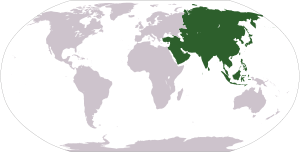
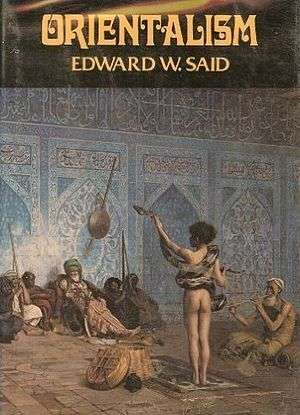
Orientalism provoked much professional and personal criticism for Said among academics.[45] Traditional Orientalists, such as Albert Hourani, Robert Graham Irwin, Nikki Keddie, Bernard Lewis, and Kanan Makiya, suffered negative consequences, because Orientalism affected public perception of their intellectual integrity and the quality of their Orientalist scholarship.[46][47][48] The historian Keddie said that Said’s critical work about the field of Orientalism had caused, in their academic disciplines:
Some unfortunate consequences . . . I think that there has been a tendency in the Middle East [studies] field to adopt the word Orientalism as a generalized swear-word, essentially referring to people who take the “wrong” position on the Arab–Israeli dispute, or to people who are judged “too conservative.” It has nothing to do with whether they are good or not good in their disciplines. So, Orientalism, for many people, is a word that substitutes for thought, and enables people to dismiss certain scholars and their works. I think that is too bad. It may not have been what Edward Saïd meant, at all, but the term has become a kind of slogan.— Approaches to the History of the Middle East (1994), pp. 144–45.[50]
In the war of ideas provoked by Orientalism, the Anglo–American Orientalist Bernard Lewis was the nemesis of Edward Said, who identified Lewis as:
A perfect exemplification [of an] Establishment Orientalist [whose work] purports to be objective, liberal scholarship, but is, in reality, very close to being propaganda against his subject material.[51]
Said said that in The Muslim Discovery of Europe (1982), Lewis responded to his thesis with the claim that the Western quest for knowledge about other societies was unique in its display of disinterested curiosity, which Muslims did not reciprocate towards Europe. That Lewis was saying that “knowledge about Europe [was] the only acceptable criterion for true knowledge.” That the appearance of academic impartiality was part of Lewis’s role as an academic authority for zealous “anti–Islamic, anti–Arab, Zionist, and Cold War crusades.”[52][53] Moreover, in the Afterword to the 1995 edition of the book, Said replied to Lewis's criticisms of the first edition of Orientalism (1978).[53][54]
Influence of Orientalism
_-_The_Motherland_(1883).jpg)
In the academy, Orientalism became a foundational text of the field of Post-colonial studies, for what the British intellectual Terry Eagleton said is its "central truth . . . that demeaning images of the East and imperialist incursions into its terrain have historically gone hand in hand."[55]
Said's friends and foes acknowledged the transformative influence of Orientalism upon scholarship in the humanities; critics said that the thesis is an intellectually limiting influence upon scholars, whilst supporters said that the thesis is intellectually liberating.[56][57] The fields of post-colonial and cultural studies attempt to explain the "post-colonial world, its peoples, and their discontents", [3][58] for which the techniques of investigation and efficacy in Orientalism, proved especially applicable in Middle Eastern studies.[10]
As such, the investigation and analysis Said applied in Orientalism proved especially practical in literary criticism and cultural studies,[10] such as the post-colonial histories of India by Gyan Prakash,[59] Nicholas Dirks[60] and Ronald Inden,[61] modern Cambodia by Simon Springer,[62] and the literary theories of Homi K. Bhabha,[63] Gayatri Chakravorty Spivak[64] and Hamid Dabashi (Iran: A People Interrupted, 2007).
In Eastern Europe, Milica Bakić–Hayden developed the concept of Nesting Orientalisms (1992), derived from the ideas of the historian Larry Wolff (Inventing Eastern Europe: The Map of Civilization on the Mind of the Enlightenment, 1994) and Said's ideas in Orientalism (1978).[65] The Bulgarian historian Maria Todorova (Imagining the Balkans, 1997) presented the ethnologic concept of Nesting Balkanisms (Ethnologia Balkanica, 1997), which is derived from Milica Bakić–Hayden's concept of Nesting Orientalisms.[66]
In The Impact of “Biblical Orientalism” in Late Nineteenth- and Early Twentieth-Century Palestine (2014), the historian Lorenzo Kamel, presented the concept of “Biblical Orientalism” with an historical analysis of the simplifications of the complex, local Palestinian reality, which occurred from the 1830s until the early 20th century.[67] Kamel said that the selective usage and simplification of religion, in approaching the place known as “The Holy Land”, created a view that, as a place, the Holy Land has no human history other than as the place where Bible stories occurred, rather than as Palestine, a country inhabited by many peoples.
Said’s post-colonial discourse, also influenced post-colonial theology and post-colonial biblical criticism, by which the reader approaches a scriptural text from the perspective of a colonial reader. (see: The Bible and Zionism: Invented Traditions, Archaeology and Post-colonialism in Palestine–Israel (2007).[68] Another book in this area is Postcolonial Theory (1998), by Leela Gandhi, explains Post-colonialism to how it can be applied to the wider philosophical and intellectual context of history.[69]
Politics
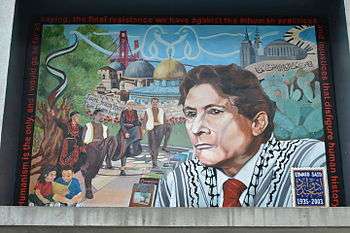
In 1967, consequent to the Six Day War (5–10 June 1967) the academic Edward Said became a public intellectual when he acted politically to counter the stereotyped misrepresentations (factual, historical, cultural) with which the U.S. news media explained the Arab–Israeli wars; reportage divorced from the historical realities of the Middle East, in general, and Palestine and Israel, in particular. To address, explain, and correct such Orientalism, Said published “The Arab Portrayed” (1968), a descriptive essay about images of “the Arab” that are meant to evade specific discussion of the historical and cultural realities of the peoples (Jews, Christians, Muslims) who are the Middle East, featured in journalism (print, photograph, television) and some types of scholarship (specialist journals) .[70]
In the essay “Zionism from the Standpoint of its Victims” (1979), Said argued in favour of the political legitimacy and philosophic authenticity of the Zionist claims and right to a Jewish homeland; and for the inherent right of national self-determination of the Palestinian people.[71] Said’s books about Israel and Palestine include The Question of Palestine (1979), The Politics of Dispossession (1994), and The End of the Peace Process (2000).
Palestinian National Council
From 1977 until 1991, Said was an independent member of the Palestinian National Council (PNC).[72] In 1988, he was a proponent of the two-state solution to the Israeli–Palestinian conflict (1948), and voted for the establishment of the State of Palestine at a meeting of the PNC in Algiers. In 1993, Said quit his membership to the Palestinian National Council, to protest the internal politics that lead to the signing of the Oslo Accords (Declaration of Principles on Interim Self-Government Arrangements, 1993), which he thought had unacceptable terms, and because the terms had been rejected by the Madrid Conference of 1991.
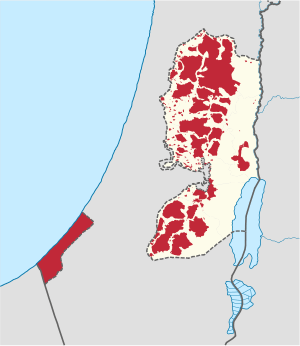
Said disliked the Oslo Accords for not producing an independent State of Palestine, and because they were politically inferior to a plan that Yasir Arafat had rejected—a plan Said had presented to Arafat on behalf of the U.S. government in the late 1970s.[73] Especially troublesome to Said was his belief that Yasir Arafat had betrayed the right of return of the Palestinian refugees to their houses and properties in the Green Line territories of pre–1967 Israel, and that Arafat ignored the growing political threat of the Israeli settlements in the occupied territories that had been established since the conquest of Palestine in 1967.
In 1995, in response to Said's political criticisms, the Palestinian Authority (PA) banned the sale of Said's books; however, the PA lifted the book-ban when Said publicly praised Yasir Arafat for rejecting Prime Minister Ehud Barak's offers at the Middle East Peace Summit at Camp David (2000) in the U.S.[74][75]
In the mid-1990s, Said wrote the Foreword to the history book Jewish History, Jewish Religion: The Weight of Three Thousand Years (1994), by Israel Shahak, about Jewish fundamentalism, which presents the cultural proposition that Israel's mistreatment of the Palestinians is rooted in a Judaic requirement (of permission) for Jews to commit crimes, including murder, against Gentiles (non-Jews). In his Foreword, Said said that Jewish History, Jewish Religion is "nothing less than a concise history of classic and modern Judaism, insofar as these are relevant to the understanding of modern Israel"; and praised the historian Shahak for describing contemporary Israel as a nation subsumed in a "Judeo–Nazi" cultural ambience that allowed the dehumanization of the Palestinian Other:[76]
In all my works, I remained fundamentally critical of a gloating and uncritical nationalism. . . . My view of Palestine . . . remains the same today: I expressed all sorts of reservations about the insouciant nativism, and militant militarism of the nationalist consensus; I suggested, instead, a critical look at the Arab environment, Palestinian history, and the Israeli realities, with the explicit conclusion that only a negotiated settlement, between the two communities of suffering, Arab and Jewish, would provide respite from the unending war.— "Orientalism: an Afterword" (Raritan, Winter 1995)[77]
In 1998, Said made In Search of Palestine (1998), a BBC documentary film about Palestine past and Palestine present, in which he returned to the country from which he had emigrated to the U.S. in 1947. In the company of his son, Wadie, Said revisited his places of boyhood, and confronted the Israeli injustices (social and cultural) meted out to ordinary Palestinians in the contemporary West Bank. Despite the social and cultural prestige usual to BBC cinema products in the U.S., the documentary was never broadcast by any American television company.[78][79]
In Palestine
On 3 July 2000, whilst touring the Middle East with his son, Wadie, the Columbia University professor Edward Said was photographed throwing a stone across the Blue Line Lebanese–Israel border, which image elicited much political criticism about his action demonstrating an inherent, personal sympathy with terrorism; and, in Commentary magazine, the journalist Edward Alexander labelled Said as "The Professor of Terror", for aggression against Israel.[80] Said explained the stone-throwing as a two-fold action, personal and political; a man-to-man contest-of-skill, between a father and his son, and an Arab Man’s gesture of joy at the end of the Israeli occupation of southern Lebanon (1985–2000):

It was a pebble; there was nobody there. The guardhouse was at least half a mile away.— “A Stone’s Throw is a Freudian Slip” (NYT, 10 March 2001)[82]
Despite having denied that he aimed the stone at an Israeli guardhouse, the Beirut newspaper As-Safir (The Ambassador) reported that a Lebanese local resident reported that Prof. Said was at less than ten metres (ca. 30 ft.) distance from the Israeli Defense Force (IDF) soldiers manning the two-storey guardhouse, when Said aimed and threw the stone over the border fence; the stone’s projectile path was thwarted when it struck the barbed wire atop the border fence.[83] Nonetheless, in the U.S., despite a political fracas by right-wing students at Columbia University and the Anti-Defamation League of B’nai B’rith International (Sons of the Covenant), the university provost published a five-page letter defending Prof. Said’s action as an academic’s freedom of expression:
To my knowledge, the stone was directed at no-one; no law was broken; no indictment was made; no criminal or civil action has been taken against Professor Saïd.— Columbia Debates a Professor’s ‘Gesture’ (NYT, 19 October 2000)[84]
Nevertheless, Said endured political repercussions, such as the cancellation of an invitation to give a lecture to the Freud Society, in Austria, in February 2001.[85] The President of the Freud Society justified withdrawing the invitation by explaining to Said that “the political situation in the Middle East, and its consequences” had rendered an accusation of anti-Semitism a very serious matter, and that any such accusation “has become more dangerous” in the politics of Austria; thus, the Freud Society cancelled their invitation to Said in order to “to avoid an internal clash” of opinions, about him, that might ideologically divide the Freud Society.[82] In Culture and Resistance: Conversations with Edward Saïd (2003), Said likened his political situation to the situation that Noam Chomsky has perdured as a public intellectual:
It’s very similar to his. He’s a well-known, great linguist. He’s been celebrated and honored for that, but he’s also vilified as an anti–Semite and as a Hitler worshiper. . . .For anyone to deny the horrendous experience of anti–Semitism and the Holocaust is unacceptable. We don’t want anybody’s history of suffering to go unrecorded and unacknowledged. On the other hand, there’s a great difference, between acknowledging Jewish oppression and using that as a cover for the oppression of another people.
— Culture and Resistance: Conversations with Edward Saïd, pp. 85, 178 (2003)[86]
Criticism of U.S. foreign policy
In the revised edition of Covering Islam: How the Media and the Experts Determine How We See the Rest of the World (1997), Said criticized the Orientalist bias of the Western news media’s reportage about the Middle East and Islam, especially the tendency to editorialize “speculations about the latest conspiracy to blow up buildings, sabotage commercial airliners, and poison water supplies.”[87] He criticized the American military involvement in the Kosovo War (1998–99) as an imperial action; and described the Iraq Liberation Act (1998), promulgated during the Clinton Administration, as the political license that predisposed the U.S. to invade Iraq in 2003, which was authorised with the Iraq Resolution (2 October 2002); and the continual support of Israel by successive U.S. presidential governments, as actions meant to perpetuate regional political instability in the Middle East.[15]
In the event, despite being sick with leukemia, as a public intellectual, Said continued criticising the U.S. Invasion of Iraq in mid-2003;[88] and, in the Egyptian Al-Ahram Weekly newspaper, in the article “Resources of Hope” (2 April 2003), Said said that the U.S. war against Iraq was a politically ill-conceived military enterprise:
My strong opinion, though I don’t have any proof, in the classical sense of the word, is that they want to change the entire Middle East, and the Arab world, perhaps terminate some countries, destroy the so-called terrorist groups they dislike, and install régimes friendly to the United States. I think this is a dream that has very little basis in reality. The knowledge they have of the Middle East, to judge from the people who advise them, is, to say the least, out of date and widely speculative. . . .
I don't think the planning for the post–Saddam, post-war period in Iraq is very sophisticated, and there’s very little of it. U.S. Undersecretary of State Marc Grossman and U.S. Undersecretary of Defense Douglas Feith testified in Congress, about a month ago, and seemed to have no figures, and no ideas [about] what structures they were going to deploy; they had no idea about the use of [the Iraqi] institutions that exist, although they want to de–Ba’thise the higher echelons, and keep the rest.
The same is true about their views of the [Iraqi] army. They certainly have no use for the Iraqi opposition that they’ve been spending many millions of dollars on; and, to the best of my ability to judge, they are going to improvise; of course, the model is Afghanistan. I think they hope that the U.N. will come in and do something, but, given the recent French and Russian positions, I doubt that that will happen with such simplicity.[89]
Under surveillance
In 2003, Haidar Abdel-Shafi, Ibrahim Dakak, Mustafa Barghouti, and Said established Al-Mubadara (The Palestinian National Initiative), headed by Dr. Mustafa Barghouti, a third-party reformist, democratic party meant to be an alternative to the usual two-party politics of Palestine. As a political party, the ideology of Al-Mubadara is specifically an alternative to the extremist politics of the social-democratic Fatah and the Islamist Hamas (Islamic Resistance Movement). Said's founding of the group, as well as his other international political activities concerning Palestine, were noticed by the U.S. government; in 2006, the anthropologist David Price obtained 147 pages of the 283-page political dossier that the FBI had compiled on Said, begun in 1971, four years into his career as a public intellectual active in U.S. politics.[90]
Music
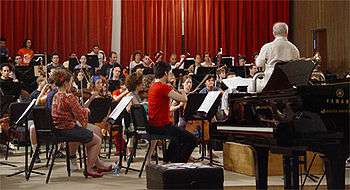
Besides having been a public intellectual, Edward Said was an accomplished pianist, worked as the music critic for The Nation magazine, and wrote four books about music: Musical Elaborations (1991); Parallels and Paradoxes: Explorations in Music and Society (2002), with Daniel Barenboim as co-author; On Late Style: Music and Literature Against the Grain (2006); and Music at the Limits (2007) in which final tome he spoke of finding musical reflections of his literary and historical ideas in bold compositions and strong performances.[91][92]
Elsewhere in the musical world, the composer Mohammed Fairouz acknowledged the deep influence of Edward Said upon his works; compositionally, Fairouz's First Symphony thematically alludes to the essay "Homage to a Belly-Dancer" (1990), about Tahia Carioca, the Egyptian terpsichorean, actress, and political militant; and a piano sonata titled Reflections on Exile (1984), which thematically refers to the emotions inherent to being an exile.[93][94][95]
In 1999, Edward W. Said and Daniel Barenboim co-founded the West-Eastern Divan Orchestra, which is composed of young Israeli, Palestinian, and Arab musicians. They also established The Barenboim–Said Foundation in Seville, to develop education-through-music projects. Besides managing the West–Eastern Divan Orchestra, the Barenboim–Said Foundation assists with the administration of the Academy of Orchestral Studies, the Musical Education in Palestine Project, and the Early Childhood Musical Education Project, in Seville.[96]
Awards
Besides honors, memberships, and postings to prestigious organizations world-wide, Edward Said was awarded some twenty honorary university degrees in the course of his professional life as an academic, critic, and Man of Letters.[97] Among the honors bestowed to him was the Bowdoin Prize by Harvard University. He twice received the Lionel Trilling Book Award; the first occasion was the inaugural bestowing of said literary award in 1976, for Beginnings: Intention and Method (1974). He also received the Wellek Prize of the American Comparative Literature Association, and was awarded the inaugural Spinoza Lens Prize.[98] In 2001, Said was awarded the Lannan Literary Award for Lifetime Achievement, and in 2002, he received the Prince of Asturias Award for Concord. He was the first U.S. citizen to receive the Sultan Owais Prize (for Cultural & Scientific Achievements, 1996–1997).[99] The autobiography Out of Place (1999) was bestowed three awards, the 1999 New Yorker Book Award for Non-Fiction; the 2000 Anisfield-Wolf Book Award for Non-Fiction; and the Morton Dauwen Zabel Award in Literature.[100]
Death and legacy
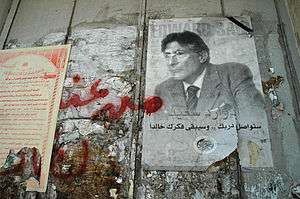
On 25 September 2003, after enduring a twelve-year sickness with chronic lymphocytic leukemia, Edward W. Said died, at 67 years of age, in New York City.[101] He was survived by his wife, Mariam C. Said, his son, Wadie Said, and his daughter, Najla Said.[102][103][104] The eulogists included Alexander Cockburn ("A Mighty and Passionate Heart");[105] Seamus Deane ("A Late Style of Humanism");[106] Christopher Hitchens ("A Valediction for Edward Said");[107] Tony Judt ("The Rootless Cosmopolitan");[108] Michael Wood ("On Edward Said");[109] and Tariq Ali ("Remembering Edward Said, 1935–2003").[110] In November 2004, in Palestine, Birzeit University renamed their music school the Edward Said National Conservatory of Music.[111]
The tributes to Edward Said include books and schools; such as Waiting for the Barbarians: A Tribute to Edward W. Said (2008) features essays by Akeel Bilgrami, Rashid Khalidi, and Elias Khoury;[112][113] Edward Said: The Charisma of Criticism (2010), by Harold Aram Veeser, a critical biography; and Edward Said: A Legacy of Emancipation and Representations (2010), essays by Joseph Massad, Ilan Pappé, Ella Shohat, Ghada Karmi, Noam Chomsky, Gayatri Chakravorty Spivak, and Daniel Barenboim; and the Barenboim–Said Academy (Berlin) was established in 2012.
See also
- Edward Said bibliography
- List of Columbia University people
- Projects working for peace among Arabs and Israelis
- Z Communications
- Orientalism
References
Citations
- ↑ William D. Hart (2000). "Preliminary remarks". Edward Said and the Religious Effects of Culture. Cambridge University Press. p. 15. ISBN 9780521778107.
- ↑ Ned Curthoys, Debjani Ganguly, ed. (2007). Edward Said: The Legacy of a Public Intellectual. Academic Monographs. p. 27. ISBN 9780522853575.
- 1 2 Robert Young, White Mythologies: Writing History and the West, New York & London: Routledge, 1990.
- ↑ "Between Worlds", Reflections on Exile, and Other Essays (2002) p. 556.
- 1 2 Ian Buchanan, ed. (2010). "Said, Edward". A Dictionary of Critical Theory. Oxford: Oxford University Press. (subscription required (help)).
- ↑ Ferial Jabouri Ghazoul, ed. (2007). Edward Saïd and Critical Decolonization. American University in Cairo Press. pp. 290–. ISBN 978-977-416-087-5. Retrieved 19 November 2011.
Edward W. Saïd (1935–2003) was one of the most influential intellectuals in the twentieth century.
- ↑ Zamir, Shamoon (2005), "Saïd, Edward W.", in Jones, Lindsay, Encyclopedia of Religion, Second Edition, 12, Macmillan Reference USA, Thomas Gale, pp. 8031–32,
Edward W. Saïd (1935–2003) is best known as the author of the influential and widely-read Orientalism (1978) . . . His forceful defense of secular humanism and of the public role of the intellectual, as much as his trenchant critiques of Orientalism, and his unwavering advocacy of the Palestinian cause, made Saïd one of the most internationally influential cultural commentators writing out of the United States in the last quarter of the twentieth century.
- ↑ Joachim Gentz (2009). "Orientalism/Occidentalism". Keywords re-oriented. interKULTUR, European-Chinese intercultural studies, Volume IV. Universitätsverlag Göttingen. pp. 41–. ISBN 978-3-940344-86-1. Retrieved 18 November 2011.
Edward Saïd's influential Orientalism (1979) effectively created a discursive field in cultural studies, stimulating fresh critical analysis of Western academic work on 'The Orient'. Although the book, itself, has been criticized from many angles, it is still considered to be the seminal work to the field.
- ↑ Richard T. Gray, Ruth V. Gross, Rolf J. Goebel, Clayton Koelb, eds. (2005). A Franz Kafka encyclopedia. Greenwood Publishing Group. pp. 212–. ISBN 978-0-313-30375-3. Retrieved 18 November 2011.
In its current usage, Orient is a key term of cultural critique that derives from Edward W. Saïd’s influential book Orientalism.
- 1 2 3 Stephen Howe, "Dangerous mind?", New Humanist, Vol. 123, November/December 2008.
- ↑ "Between Worlds", Reflections on Exile, and Other Essays (2002) pp. 561, 565.
- ↑ Sherry, Mark (2010). "Said, Edward Wadie (1935–2003)". In John R. Shook. The Dictionary of Modern American Philosophers. Oxford: Continuum. (subscription required (help)).
- ↑ Richard Bernstein, "Edward Saïd, Literary Critic and Advocate for Palestinian Independence, Dies at 67", The New York Times. 26 September 2003. Accessed 5 January 2010.
- ↑ Andrew N. Rubin, "Edward W. Said", Arab Studies Quarterly, Fall 2004: p. 1. Accessed 5 January 2010.
- 1 2 Democracy Now!, "Edward Saïd Archive", DemocracyNow.org, 2003. Accessed 4 January 2010.
- ↑ http://www.progressive.org/0901/intv1101.html
- ↑ Hughes, Robert (1993-06-21). "Envoy to Two Cultures". Time. Retrieved 2008-10-21.
- ↑ Ihab Shalback, 'Edward Said and the Palestinian Experience,' in Joseph Pugliese (ed.) Transmediterranean: Diasporas, Histories, Geopolitical Spaces, Peter Lang, 2010, pp. 71–83
- ↑ Adel Iskander, Hakem Rustom (2010). Edward Saïd: A Legacy of Emancipation and Representation. University of California Press. ISBN 978-0-520-24546-4.
[Edward Wadie] Saïd was of Christian background, a confirmed agnostic, perhaps even an atheist, yet he had a rage for justice and a moral sensibility lacking in most [religious] believers. Saïd retained his own ethical compass without God, and persevered in an exile, once forced, from Cairo, and now chosen, affected by neither malice nor fear.
- ↑ John Cornwell (2010). Newman's Unquiet Grave: The Reluctant Saint. Continuum International Publishing Group. p. 128. ISBN 9781441150844.
A hundred and fifty years on, Edward Saïd, an agnostic of Palestinian origins, who strove to correct false Western impressions of 'Orientalism', would declare Newman's university discourses both true and 'incomparably eloquent'. . . .
- ↑ Joe Sacco (2001). Palestine. Fantagraphics.
- ↑ Amritjit Singh, Interviews With Edward W. Saïd (Oxford: UP of Mississippi, 2004) pp. 19, 219.
- ↑ Edward Saïd, Defamation, Revisionist Style, CounterPunch, 1999. Accessed 7 February 2010.
- 1 2 3 4 Edward Said, Between Worlds, London Review of Books, 7 May 1998.
- ↑ Said, Edward W. (1999). Out of Place. Vintage Books, NY. p. 201.
- ↑ ”Between Worlds”, Reflections on Exile, and Other Essays (2002) pp. 556–57.
- ↑ Saïd, Edward. Out of Place, Vintage Books, 1999: pp. 82–83.
- ↑ Encyclopædia Britannica Online, Edward Saïd, accessed 3 January 2010.
- 1 2 LA Jews For Peace, The Question of Palestine by Edward Saïd. (1997) Books on the Israel–Palestinian Conflict – Annotated Bibliography, accessed 3 January 2010.
- ↑ Dr. Farooq, Study Resource Page, Global Web Post, accessed on 3 January 2010.
- ↑ Omri, Mohamed-Salah, "The Portrait of the Intellectual as a Porter"
- ↑ Columbia University Press, About the Author: Humanism and Democratic Criticism, 2004.
- ↑ Moustafa Bayoumi and Andrew Rubin, Eds., The Edward Saïd Reader, Vintage, 2000, p. xv.
- ↑ "The Reith Lectures: Edward Saïd: Representation of the Intellectual: 1993". BBC. Retrieved 13 Nov 2011.
- ↑ Joseph Conrad and the Fiction of Autobiography (1966).
- ↑ McCarthy, Conor (2010). The Cambridge Introduction to Edward Said. Cambridge UP. pp. 16–. ISBN 9781139491402. Retrieved 27 February 2013.
- ↑ Edward Saïd, Power, Politics and Culture, Bloomsbury Publishing, 2001: pp. 77–79.
- 1 2 Windschuttle, Keith. “Edward Saïd’s ‘Orientalism revisited’”, The New Criterion 17 January 1999. Archived 1 May 2008, at the Internet Archive, accessed 23 November 2011.
- ↑ Said, Edward (26 April 1980). "Islam Through Western Eyes". The Nation. Retrieved 6 June 2013.
- ↑ Saïd, Edward. Orientalism, Vintage Books: New York: 1979 p. 12.
- ↑ Said, Edward. Orientalism: p. 11.
- ↑ Said, Edward. Orientalism, pp. 56–57.
- ↑ 'Said, Edward 'Orientalism, pp. 38–41.
- ↑ Said, Edward. Orientalism, pp. 65–67.
- ↑ Martin Kramer, "Enough Said (Book review: Dangerous Knowledge, by Robert Irwin)", March 2007. Retrieved 5 January 2010.
- ↑ Lewis, Bernard Lewis “The Question of Orientalism”, Islam and the West, London: 1993. pp. 99, 118.
- ↑ Irwin, Robert For Lust of Knowing: The Orientalists and Their Enemies London:Allen Lane: 2006.
- ↑ Martin Kramer said that “Fifteen years after [the] publication of Orientalism, the UCLA historian Nikki Keddie (whose work Saïd praised in Covering Islam: How the Media and the Experts Determine How We See the Rest of the World) allowed that Orientalism was ‘important, and, in many ways, positive’ ”.[49]
- ↑ "Said's Splash" Ivory Towers on Sand: The Failure of Middle Eastern Studies in America, Policy Papers 58 (Washington, D.C.: Washington Institute for Near East Policy, 2001).
- ↑ Approaches to the History of the Middle East, Nancy Elizabeth Gallagher, Ed., London:Ithaca Press, 1994: pp. 144–45.
- ↑ Said, Edward Orientalism, p. 315.
- ↑ Saïd, Edward Orientalism (1978), p. 315; “Orientalism Reconsidered” (1985), p. 96.
- 1 2 Edward Saïd, "Orientalism Reconsidered", Cultural Critique magazine, No. 1, Autumn 1985, p. 96.
- ↑ Said, Edward Orientalism: pp. 329–54
- ↑ Terry Eagleton, Eastern Block (book review of For Lust of Knowing: The Orientalists and Their Enemies (2006), by Robert Irwin), New Statesman, 13 February 2006.
- ↑ Martin Kramer. Ivory Towers on Sand: The Failure of Middle Eastern Studies in America (2001)
- ↑ Andrew N. Rubin, "Techniques of Trouble: Edward Saïd and the Dialectics of Cultural Philology", The South Atlantic Quarterly, 102.4 (2003). pp. 862–76.
- ↑ Emory University, Department of English, Introduction to Postcolonial Studies
- ↑ Gyan Prakash, "Writing Post-Orientalist Histories of the Third World: Perspectives from Indian Historiography", Comparative Studies in Society and History 32.2 (1990): 383–408.
- ↑ Nicholas Dirks, Castes of Mind, Princeton: Princeton UP, 2001.
- ↑ Ronald Inden, Imagining India, New York: Oxford UP, 1990.
- ↑ Simon Springer, "Culture of Violence or Violent Orientalism? Neoliberalisation and Imagining the 'Savage Other' in Post-transitional Cambodia", Transactions of the Institute of British Geographers 34.3 (2009): 305–19.
- ↑ Homi K. Bhaba, Nation and Narration, New York & London: Routledge, Chapman & Hall, 1990.
- ↑ Gayatri Chakravorty Spivak, In Other Worlds: Essays in Cultural Politics, London: Methuen, 1987.
- ↑ John E Ashbrook (2008), Buying and Selling the Istrian Goat: Istrian Regionalism, Croatian Nationalism, and EU Enlargement, New York: Peter Lang, p. 22, ISBN 90-5201-391-8, OCLC 213599021,
Milica Baki–Hayden built on Wolff's work, incorporating the ideas of Edward Saïd's "Orientalism"
- ↑ Ethnologia Balkanica, Sofia: Prof. M. Drinov Academic Pub. House, 1995, p. 37, OCLC 41714232,
The idea of "nesting orientalisms", in Baki–Hayden 1995, and the related concept of "nesting balkanisms", in Todorova 1997. . . .
- ↑ Kamel, Lorenzo (2014). "The Impact of "Biblical Orientalism" in Late Nineteenth- and Early Twentieth-Century Palestine". New Middle Eastern Studies (4).
- ↑ Masalha, Nur (2007). The Bible and Zionism : invented traditions, archaeology and post-colonialism in Palestine-Israel. New York: Zed Books.
- ↑ Gandhi, Leela (1998). Postcolonial Theory. New York: Columbia University Press.
- ↑ “Between Worlds”, Reflections on Exile, and Other Essays (2002) pp. 563.
- ↑ Edward Saïd, “Zionism from the Standpoint of its Victims” (1979), in The Edward Saïd Reader, Vintage Books, 2000, pp. 114–68.
- ↑ Malise Ruthven, "Edward Said: Controversial Literary Critic and Bold Advocate of the Palestinian Cause in America," The Guardian 26 September 2003; accessed 1 March 2006.
- ↑ Edward Saïd, "The Morning After". London Review of Books Vol. 15 No. 20. 21 October 1993.
- ↑ Michael Wood, "On Edward Said", London Review of Books, 23 October 2003, accessed 5 January 2010.
- ↑ Edward Said, "The price of Camp David", Al Ahram Weekly, 23 July 2001. Accessed 5 January 2010.
- ↑ Werner Cohn: What Edward Said knows Page accessed 2012-06-15.
- ↑ Edward Saïd, "Orientalism, an Afterward" Raritan 14:3 (Winter 1995).
- ↑ BFI | Film & TV Database | IN SEARCH OF PALESTINE (1998)
- ↑ Culture and resistance: conversations with Edward W. Said By Edward W. Said, David Barsamian, p. 57
- ↑ Julian Vigo, “Edward Saïd and the Politics of Peace: From Orientalisms to Terrorology”, A Journal of Contemporary Thought (2004): pp. 43–65.
- ↑ Julian Vigo, “Edward Saïd and the Politics of Peace: From Orientalisms to Terrorology”, A Journal of Contemporary Thought (2004): pp. 43–65.
- 1 2 Dinitia Smith, "A Stone's Throw is a Freudian Slip", The New York Times, 10 March 2001.
- ↑ Sunnie Kim, Edward Said Accused of Stoning in South Lebanon, Columbia Spectator, 19 July 2000.
- ↑ Karen W. Arenson (19 October 2000). "Columbia Debates a Professor's 'Gesture'". The New York Times.
- ↑ Edward Saïd and David Barsamian, Culture and Resistance – Conversations with Edward Said, South End Press, 2003: pp. 85–86
- ↑ Edward Saïd and David Barsamian, Culture and Resistance: Conversations with Edward Saïd, South End Press, 2003: pp. 85, 178
- ↑ Martin Kramer, Enough Said (review of Dangerous Knowledge, by Robert Irwin, March 2007.
- ↑ Democracy Now!, "Syrian Expert Patrick Seale and Columbia University Professor Edward Said Discuss the State of the Middle East After the Invasion of Iraq", DemocracyNow.org, 15 April 2003. Accessed 4 January 2010.
- ↑ Said, Edward."Resources of Hope", Al-Ahram Weekly, 2 April 2003, accessed April 26, 2007.
- ↑ David Price, "How the FBI Spied on Edward Said," CounterPunch 13 January 2006, accessed 15 January 2006.
- ↑ Ranjan Ghosh, Edward Said and the Literary, Social, and Political World, New York: Routledge, 2009: p. 22.
- ↑ Columbia University Press, Music at the Limits by Edward W. Saïd, accessed 5 January 2010.
- ↑ Rase, Sherri (8 April 2011), Conversations—with Mohammed Fairouz, [Q]onStage, retrieved 2011-04-19
- ↑ "Homage to a Belly-dancer", Granta, 13 (Winter 1984).
- ↑ "Reflections on Exile", London Review of Books, 13 September 1990.
- ↑ Barenboim–Saïd Foundation, official website, Barenboim-Said.org. Accessed 4 January 2010.
- ↑ The English Pen World Atlas, "Edward Said", accessed on 3 January 2010.
- ↑ Spinozalens, Internationale Spinozaprijs Laureates, accessed on 3 January 2010.
- ↑ Columbia University Press, "About the Author", Humanism and Democratic Criticism, 2004.
- ↑ The English Pen World Atlas, Edward Said, accessed on 3 January 2010.
- ↑ Bernstein, Richard (26 September 2003). "Edward W. Said, Literary Critic and Advocate for Palestinian Independence, Dies at 67". The New York Times. p. 23. Retrieved 6 June 2013.
- ↑ Ruthven, Malise (26 September 2003). "Obituary: Edward Said". The Guardian. Retrieved 6 June 2013.
- ↑ "Columbia Community Mourns Passing of Edward Said, Beloved and Esteemed University Professor". Columbia News. 26 September 2003. Retrieved 6 June 2013.
- ↑ Feeney, Mark (26 September 2003). "Edward Said, critic, scholar, Palestinian advocate; at 67". The Boston Globe. Retrieved 6 June 2013.
- ↑ Alexander Cockburn, "A Mighty and Passionate Heart", Counterpunch
- ↑ 'A Late Style of Humanism', Field Day Review 1 (Dublin: 2005), http://oconnellhouse.nd.edu/assets/39753/sdeanefdr.pdf
- ↑ Christopher Hitchens, "A Valediction for Edward Said" Slate, September 2003
- ↑ Tony Judt, "The Rootless Cosmopolitan", The Nation
- ↑ Michael Wood, On Edward Said, London Review of Books, 23 October 2003, accessed 5 January 2010.
- ↑ Tariq Ali, "Remembering Edward Said (1935–2003)", The New Left Review
- ↑ Birzeit University, Edward Said National Conservatory of Music.
- ↑ "Conference: Waiting for the Barbarians: A Tribute to Edward Said." 25–26 May 2007. Bogazici University. European Journal of Turkish Studies. Ejts.org. Accessed 5 January 2010.
- ↑ Jorgen Jensehausen, "Review: 'Waiting for the Barbarians'" Journal of Peace Research Vol. 46 No. 3 May 2009. Accessed 5 January 2010.
Bibliography
- Barsamian, David (2003). Culture and Resistance: Conversations with Edward W. Said. Pluto. ISBN 9780745320175.
- Cornwell, John (2010). Newman's Unquiet Grave: The Reluctant Saint. Continuum International. ISBN 9781441150844.
- Joachim Gentz (2009). "Orientalism/Occidentalism". Keywords re-oriented. interKULTUR, European-Chinese intercultural studies, Volume IV. Universitätsverlag Göttingen. pp. 41–. ISBN 978-3-940344-86-1. Retrieved 18 November 2011.
- Ghazoul, Ferial Jabouri, ed. (2007). Edward Said and Critical Decolonization. American University in Cairo Press. ISBN 978-977-416-087-5. Retrieved 19 November 2011.
Edward W. Said (1935–2003) was one of the most influential intellectuals in the twentieth century.
- Gray, Richard T.; Gross, Ruth V.; Goebel, Rolf J.; et al., eds. (2005). A Franz Kafka encyclopedia. Greenwood. ISBN 978-0-313-30375-3. Retrieved 18 November 2011.
- Iskander, Adel; Rustom, Hakem (2010). Edward Said: A Legacy of Emancipation and Representation. University of California Press. ISBN 978-0-520-24546-4.
- McCarthy, Conor (2010). The Cambridge Introduction to Edward Said. Cambridge UP. ISBN 9781139491402.
- Said, Edward W. (1979). Orientalism. Knopf Doubleday. ISBN 9780394740676.
- Singh, Amritjit; Johnson, Bruce G., eds. (2004). Interviews with Edward W. Said. UP of Mississippi. ISBN 9781578063666.
- Turner, Bryan S; Rojek, Chris (2001). Society and Culture: Scarcity and Solidarity. SAGE. ISBN 9780761970491.
- Zamir, Shamoon (2005). "Said, Edward W.". In Jones, Lindsay. Encyclopedia of Religion, Second Edition. 12. Macmillan. pp. 8031–32.
Further reading
- Prasad Pannian. Edward Said and the Question of Subjectivity[1] Palgrave Macmillan. New York and London, 2016.
- Valerie Kennedy Edward Said: A Critical Introduction. Key Contemporary Thinkers. Malden, MA: Wiley-Blackwell, 2000.
- Conor McCarthy The Cambridge Introduction to Edward Said. Cambridge: Cambridge University Press, 2010.
- Andrew N. Rubin, editor, Humanism, Freedom, and the Critic: Edward W. Said and After. Washington, DC: Georgetown University Press, 2005.
External links
| Wikimedia Commons has media related to Edward Said. |
| Wikiquote has quotations related to: Edward Said |
- The Edward Said Archive
- Edward Said at the Internet Movie Database
- Review of Reflections on Exile and Other Essays and Edward Said: The Last Interview, in Other Voices, vol. 3, no. 1.
- Works by Edward Said at Open Library
- Appearances on C-SPAN
- ↑ Pannian, Prasad (2016-01-20). Edward Said and the Question of Subjectivity. Palgrave Macmillan. ISBN 9781137548641.